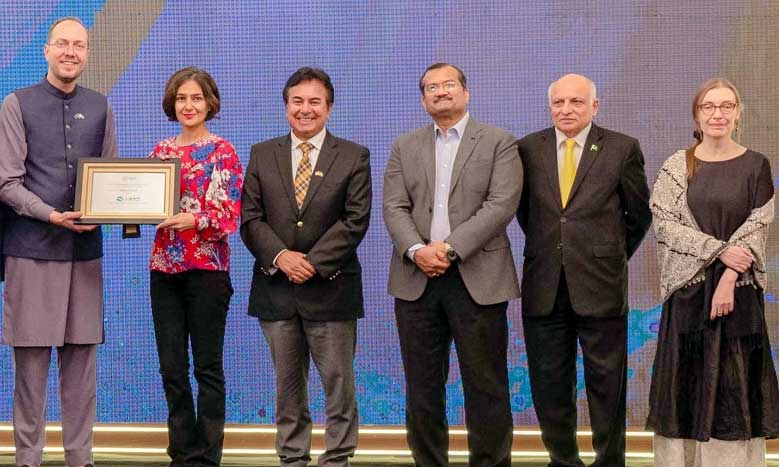ISLAMABAD: The Gaza conflict is not merely politically rooted but fundamentally humanitarian, with a collective responsibility of the Muslim world to provide support through a unified response at all levels. The Palestine crisis requires not just expressions of solidarity but cohesive and collective strength of Muslim Ummah, says a Press release.
This was observed by Dr Ateq Al Garbi, an expert on Yemen-Gulf affairs and the executive director of the Mokha Center for Strategic Studies, Turkiye, during a session on ‘The War on Gaza: Dynamics in the Red Sea’, held at the Institute of Policy Studies (IPS), Islamabad. The session, chaired by Brig (Retd) Said Nazir, was joined by Khalid Rahman, chairman IPS, Prof Dr Fakhr-ul-Islam, Prof Dr Shahzad Iqbal Sham, Prof Dr Tughral Yamin, and others.
The evolving dynamics of the century-old Palestine crisis have resulted in the loss of tens of thousands of lives and the displacement of millions. Despite its Islamic significance, efforts to unite against Israel and its allies are hindered by divisions within the Muslim world, especially among Arab states. Muslim world remains fragmented while their adversaries are finding common ground.
Dr Ateq underlined that weaknesses and fragmentation in the Arab world hamper a coordinated and cohesive response. This includes the divisions and the absence of unity among Islamic mobilization movements and the respective political leadership in the Middle East. These entities must work together with the government to devise a common stance and mobilize towards it collectively, he advised. Yemen serves as a positive example, where, despite internal contradictions, Islamist movements and state leadership have unified their stance on Gaza.
Additionally, sectarian tensions, particularly between Sunni and Shia sects, have compounded the fragmentation, allowing Israel to exploit internal divisions and deface Palestinian nationalists and Hamas. Some Muslim states like Egypt and Jordan seem to avoid the Islamic nature and significance of the situation and prioritize political or sectarian factors.
The speaker urged the Muslim states to rally behind the Palestinian cause, prioritizing the humanitarian imperative and setting aside internal discord. With the rise of hostilities in the Red Sea region, media attention is now being diverted from the humanitarian crisis in Gaza, making the responsibilities of the Muslim world even more urgent. With this, raising awareness and advocating for Palestine at every level, from grassroots activism to international diplomacy, must be a collective priority.
In concluding remarks, Brig (Retd) Said Nazir underscored that self-determination and human rights are the core principles driving the Palestinian struggle. Despite international media and world powers framing Hamas as the instigator of the conflict, the world must not ignore the inhumane conduct and human rights violations by Israel. The unfolding events have also exposed the backing of the US and European powers, which inadvertently enables Israel to escape accountability and resist pressure.
He warned that the war might expand and the underlying vacuum in the response of Muslim Ummah could be more devastating in that case. The senior analyst urged Muslim states not to be deterred by past experiences, such as the aftermath of 9/11, and instead unite for a cohesive and unified stance against the ongoing aggression against Palestine.
Palestine issue must be a collective priority of the Muslim World: Dr Ateq




